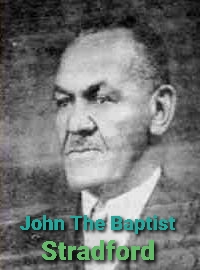Free People of Colors ADOS generally speaking at that time DID NOT want any parts of that. They knew it was some racist sh1t to send them packing and weaken enslaved ADOS of representation
Whether they didn't want to go to Liberia or not because of racist southern planters who hijacked a resettlement movement for their own racist purposes does not negate from the fact that, previous to that, there had been blacks who both entertained and put in work to resettle west africa of their own volition. Cuffe and Forten were the wealthiest black men in Boston and Philadelphia at the time. The above source that you cite shows that Forten initially supported the movement. But he wasn't the only one. Cuffe had the support of multiple prominent black leaders. The tide for support turned in the opposite direction when southerners coopted the movement which caused free blacks to have to oppose the movement on principal.
Cuffe became interested in the possibility of freed slaves’ returning to Africa. He thus embarked on efforts to establish settlements on Africa’s west coast and to develop trade routes to the area. In 1811 he founded the Friendly Society of Sierra Leone and subsequently sailed there. Later that year he journeyed to England, where he met with British abolitionists and sought support for his resettlement plans; he eventually secured a land grant. In 1812 Cuffe returned to the United States, at which time his cargo was seized on charges that he broke the 1807 Embargo Act, which restricted imports from Great Britain. Cuffe traveled to Washington, D.C., where he met with U.S. Pres. James Madison, who ordered the release of his cargo. Cuffe continued to advocate for his colonization plans, and he initially gained support from a number of African American leaders. In December 1815 Cuffe and 38 black settlers sailed for Sierra Leone, and they landed in February 1816. He returned to the United States later that year and sought backing for another voyage. However, his health soon began to decline, and he died the following year. He wrote Memoir of Captain Paul Cuffee (1811)





